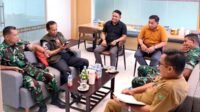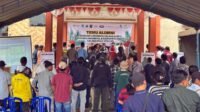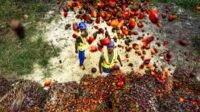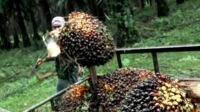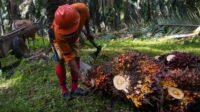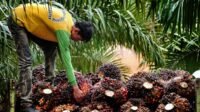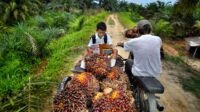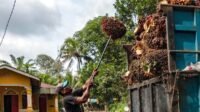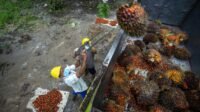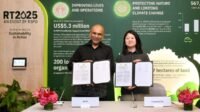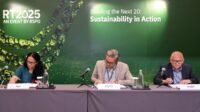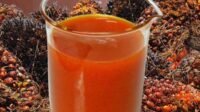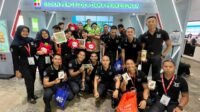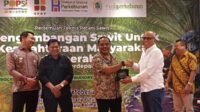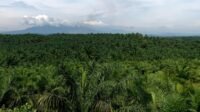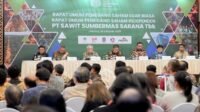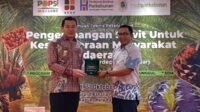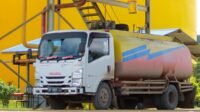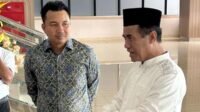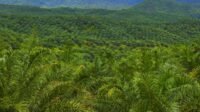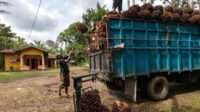PALMOILMAGAZINE, SOUTH BANGKA — Once surrounded by lush green fields, the farmers of Rias Village, Toboali District, South Bangka, are now facing a growing crisis. It’s not pests or weather that trouble them most—but the steady advance of oil palm plantations onto their farmland.
Angga, a farmer from Air Pairem Hamlet, expresses his deep frustration. His paddy field now sits wedged between rubber trees and palm oil plantations. What was once a serene, productive landscape has become a source of anxiety. The problem isn’t just land conversion—it’s the looming threat to food production itself.
“Water in my field only lasts two or three days now. Pests, especially rats, are becoming more common,” said Angga, quoted by Palmoilmagazine.com via BangkaPos on Friday, May 16, 2025. He reports that since the paddy fields became surrounded by palm plantations, yields have plummeted. From one hectare spread over four plots, he now only harvests 29 sacks of dried unhusked rice—far below expectations.
Angga and other farmers have repeatedly voiced their concerns to local, district, and even provincial authorities. In fact, they raised the issue directly with the Governor of Bangka Belitung in 2018. But until now, they say, no real action has followed.
“It feels like we’ve been left to deal with this on our own,” he said quietly.
The conversion of rice fields to plantations is at the heart of the issue. Land that should be protected under food security regulations is gradually shrinking—its use quietly shifting to oil palm cultivation. Whether these changes are legal or violate zoning and agricultural laws remains unclear.
Risvandika, Acting Head of the South Bangka Office for Agriculture, Food, and Fisheries, said the local government will investigate the status of the disputed land. However, he could not confirm whether the conversion is illegal or compliant with regulations.
Meanwhile, the farmers wait—anxious and uncertain. For them, rice fields are not just about harvests. They represent livelihoods, culture, and identity. If palm expansion continues unchecked, a local food crisis could be brewing—starting in a place as small as Air Pairem Hamlet.
Crucial questions remain unanswered: Who granted the land permits? Was there any environmental assessment? And most importantly—who will protect farmers if agricultural land continues to vanish?
For Angga and the farmers of Rias Village, the answers to these questions will determine not just their next planting season—but the very future of farming in South Bangka. (P2)




